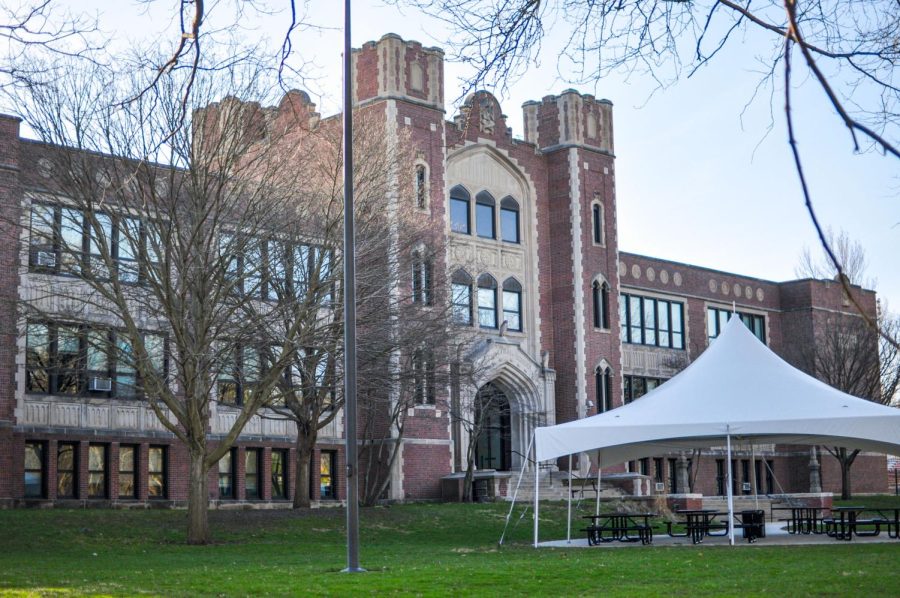Student observers face trouble finding classroom experience amid teacher shortage
Due to a teacher shortage, many University students struggle finding in class experience with handfuls of them being assigned study halls in Urbana High School.
April 11, 2022
University students have had trouble finding teachers willing to take them on as student observers, resulting in some being assigned to study halls this semester, leading to frustration and concern among University students studying to be teachers.
Current teachers have been overwhelmed by a combination of concerns over the pandemic and increased work due to the shortage of teachers. As a result, teachers have been less willing to accept and oversee student observers.
Avi Miller, senior in LAS, was initially assigned to a study hall at Urbana High School.
“I get where the University is coming from, and how they really want to make sure that we’re prepared to be an ethical teacher, but I feel like the implementation in which they’ve put us in the classroom has just been really sloppy,” Miller said.
Miller said he believes that a lack of coordination may be one of the reasons that many student observers have been placed in study halls.
Get The Daily Illini in your inbox!
“It seems like there’s just a huge lack of communication between the University and the participating schools, especially Urbana High School,” Miller said.
Kay Tetlak, junior in LAS, was placed in a study hall at Urbana High School before being assigned to a teacher who took on 11 University students as student observers. She also attributed this to lack of communication from the University.
“Mr. Nance, the principal, didn’t know that we were supposed to be doing lesson plans,” Tetlak said. “He only thought that we were supposed to observe kids.”
These University student observers were supposed to teach two lesson plans at Urbana High School, but this wasn’t possible. According to Tetlak, her group communicated this with Nance and were assigned to the only two teachers there who were willing to take them on.
“A lot of (study hall students) were put off by the fact that there were authority figures there, and chose to go to lunch instead … We felt like we were invading on their space,” Tetlak said.
The College of Education said in an email statement that Nance worked with available teachers at Urbana High School to find classroom placements for students.
“Mr. Nance was able to find teachers to observe for all U of I students placed in academic support classes, and they are now forming relationships with teachers and students at Urbana High School, as well as completing their required assignments for their classes,” the College of Education said in an email statement.
Tetlak’s professor waived the requirement for teaching lesson plans after hearing about these difficulties, many University student observers felt that this does not prepare them adequately for the classroom.
Miller is currently pursuing a substitute teaching job with Urbana High School to get more direct classroom experience. However, paid substitute positions can not be used as student teaching credit.
“The need is there, and the opportunity would be amazing for the purpose of experience in the classroom,” Miller said, referencing a current shortage of substitute teachers. “But the University won’t allow it because of the money issue.”
This is particularly frustrating to many students, as tuition is required for classes that give student teaching credit.
“We were all frustrated because we pay $700 to be here,” Tetlak said. “If you’re going to charge me to student-teach, get me in a classroom. I’m paying you for an education, and if you’re not fulfilling it. That’s a problem that needs to be resolved.”
In an email statement, the College of Education emphasized that the Secondary Social Studies program is growing and that they’re lucky to see increased enrollment. They said the school and Community Experiences office is committed to providing students with a variety of in-person experiences.
Editor’s Notes:
*The College of Education recently contacted The Daily Illini with a statement in relation to student concern. The story has been updated to reflect these comments.
*A previous version of this article used the title “student teachers”. The story has been updated to include the correct title. The Daily Illini regrets this error.







